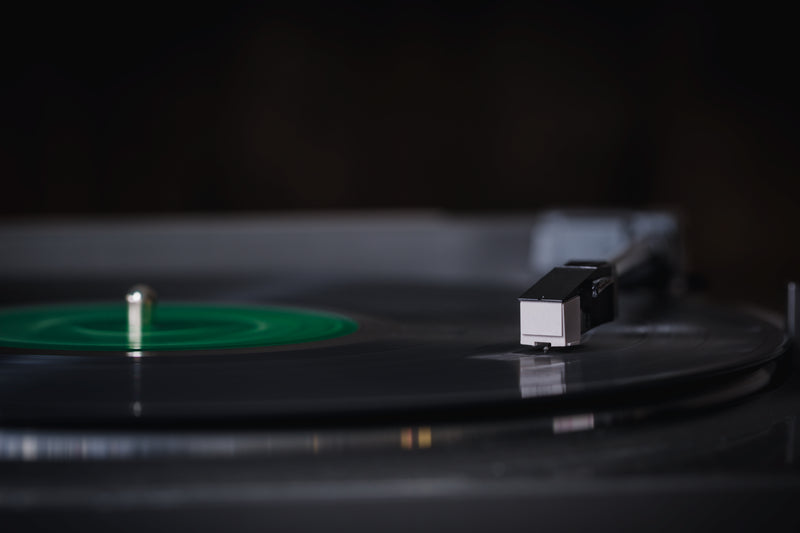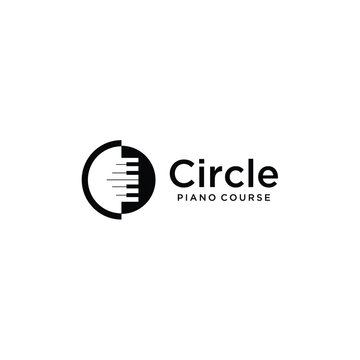Are you passionate about music and dream of making a career as a music producer? Have you always been in awe of the magic behind the scenes of your favorite songs but have no idea where to start? Look no further because in this ultimate guide on how to become a music producer, we will take you through everything you need to know to turn your passion into a profession. From understanding the fundamentals of music production to mastering advanced techniques, we’ve got you covered. So buckle up and get ready for an exciting journey into the world of music production!
Table of Contents
Introduction: What is Music Production and Why You Should Consider It?
Music production is the process of creating music from scratch or enhancing existing tracks. Becoming a music producer can be a rewarding career choice for those who are passionate about music and have a creative mind. As a music producer, you will be responsible for overseeing the entire production process, from writing and arranging music to recording and mixing tracks. It’s a challenging but exciting role that requires a unique set of skills and qualities. In this guide, we will explore the essential skills and tools you need to become a successful music producer. We’ll also discuss how to build your home studio on a budget, understand music theory, create unique sounds using sampling techniques, and market yourself in the digital age. Whether you’re an aspiring musician or just starting out in the industry, this guide will provide you with everything you need to know to kickstart your career in music production.

Essential Skills and Qualities of a Successful Music Producer
Becoming a successful music producer requires more than just technical skills. While having a good ear for music and knowledge of production software is important, there are other qualities that can set you apart from the competition.
One key trait is creativity. As a music producer, you need to be able to come up with fresh ideas and think outside the box to create unique sounds that stand out from the crowd. Another important skill is communication. You will be working closely with artists, engineers, and other professionals in the industry, so being able to effectively communicate your vision and collaborate with others is crucial.
Organization and time management are also essential skills for a music producer. You will need to juggle multiple projects at once and meet deadlines while ensuring that each project receives the attention it deserves.
Finally, perseverance is key. The music industry can be tough, but if you are passionate about your craft and willing to put in the hard work, you can succeed as a music producer.
How to Build Your Home Studio on a Budget
To become a music producer, you need a home studio where you can create and record your music. However, building a professional studio can be expensive. The good news is that you can create a home studio on a budget by using affordable equipment and DIY solutions.
Start with a computer, an audio interface, and a pair of studio headphones. You can also invest in a microphone, studio monitors, and acoustic treatment to improve the sound quality of your recordings. If you’re on a tight budget, you can use household items like blankets or egg cartons to absorb unwanted echoes.
When setting up your home studio, consider the acoustics of the room. Choose a room with minimal background noise and avoid rooms with hard surfaces like tile or hardwood floors. Soft surfaces like carpets or curtains can help absorb sound.
Remember that your home studio doesn’t have to be perfect. As long as you have the essential equipment and a quiet space to work in, you can start producing music from the comfort of your own home.
The Best Software and Tools for Music Production
Software and tools are crucial for music production, as they greatly impact the quality of your output. Digital Audio Workstations (DAWs) like Ableton Live, Logic Pro X, or FL Studio are excellent software choices for beginners. They provide a range of features such as recording capabilities, virtual instruments, samplers, sequencers and mixing tools all in one platform.
For hardware equipment needs, you will need a decent computer, preferably with high processing power to handle complex projects. A good pair of studio monitors is also essential for accurate sound representation during playback and mixing.
Other must-have accessories include MIDI controllers (such as keyboards), audio interfaces (for connecting external devices to your DAW), and microphones (to capture live recordings or vocals).
In addition to these essentials there are many third-party plugins available that can expand the functionality of your DAW considerably: from effects processors to synthesizers there’s no shortage of options. Remember though that it’s easy to get lost in buying unnecessary gear- so focus on getting what you need first before expanding further down the line!

Understanding Music Theory: A Must-Have Skill for Every Music Producer
While you don’t necessarily need to be a classically trained musician to become a successful music producer, having an understanding of music theory is essential. Knowing the fundamentals like scales, chords, and time signatures will help you create better melodies and harmonies in your tracks.
One important concept in music theory is the circle of fifths. This tool helps producers understand which chord progressions work well together and can guide them when composing their tracks. Another crucial skill is knowing how to build chords from scratch using intervals like thirds or fifths.
If you’re just starting with music theory, it’s easy to get overwhelmed by all the different concepts out there. However, taking small steps like learning one new scale each week or practicing building simple chords can go a long way towards improving your productions over time.
Take advantage of online resources such as tutorials and videos on platforms like YouTube or forums dedicated to music production where you can ask questions and learn from other producers. With practice and patience, even beginners can master basic music theory skills that will enhance their creativity as they make their own unique soundtracks.
The Art of Sampling: How to Create Unique Sounds for Your Tracks
The Basics of Sampling: Understanding the Fundamentals
Sampling is a crucial aspect of music production that allows producers to create unique sounds for their tracks. Understanding the fundamentals of sampling is essential for any aspiring music producer. Sampling involves taking a portion of an existing sound recording and using it as an instrument or element in a new composition. This can be done using various software and hardware tools, such as samplers and digital audio workstations (DAWs). By manipulating the sampled sound, producers can create entirely new sounds that add depth and character to their tracks. Experimentation is key when it comes to sampling, as it allows producers to discover new sounds and push the boundaries of what’s possible in music production.
Finding Inspiration: Where to Look for Sample Material
When it comes to creating unique sounds for your tracks, sampling can be a powerful tool. But where do you find the right material? One option is to look for free sample packs online, but keep in mind that these are often overused and may not be the most original choice. A better approach is to think outside the box and explore unconventional sources such as field recordings or vintage vinyl records. Remember that originality is key when it comes to producing music, so don’t shy away from experimenting and taking creative risks in your sampling choices.
Sampling Techniques: How to Manipulate Sounds and Create Something New
To create unique sounds for your tracks, you need to master the art of sampling. Sampling involves taking a small portion of an existing sound recording and using it as an instrument or sound effect in your own music. There are various techniques you can use to manipulate the sampled sounds and create something new. One technique is time-stretching, which involves changing the tempo of the sample without affecting its pitch. Another technique is pitch-shifting, which involves changing the pitch of the sample without affecting its tempo. By experimenting with these techniques and combining them with other effects, you can create truly original sounds for your music production.
Legal Considerations: Navigating Copyright Laws When Using Samples
When using samples in your music production, it’s important to navigate copyright laws to avoid legal issues. Fair use is a legal doctrine that allows you to use copyrighted material without permission for certain purposes such as criticism, commentary, news reporting, teaching, scholarship, or research. However, the rules of fair use can be complex and vary by country. To be safe, it’s best to obtain permission from the copyright owner before using any samples in your tracks. You can also purchase royalty-free sample packs or create your own samples to ensure that you have the legal right to use them in your music production.
Tips and Tricks for Mixing and Mastering Your Music
Mixing and mastering are crucial steps in the music production process. Mixing involves balancing the levels of each instrument and vocal track, as well as adding effects such as reverb and delay. Mastering is the final step where the entire track is polished and made ready for distribution.
To achieve a professional-sounding mix, it’s important to use quality monitoring equipment such as studio headphones or speakers. It’s also important to take breaks frequently to avoid ear fatigue and maintain objectivity.
When it comes to mastering, it’s important to ensure that the track is properly leveled and has a consistent frequency balance. This can be achieved through careful use of EQ, compression, and limiting.
There are many resources available for learning how to mix and master, including online tutorials and courses. It’s also helpful to listen critically to professional tracks in your genre to gain an understanding of what a well-mixed and mastered track should sound like.
Building Your Brand as a Music Producer: Marketing Yourself in the Digital Age
Establishing Your Online Presence: Creating a Website and Social Media Accounts
In today’s digital age, having a strong online presence is crucial for any music producer looking to build their brand. Creating a website is a great way to showcase your work and provide potential clients with a platform to contact you. Make sure your website is visually appealing and easy to navigate. Social media accounts are also essential for marketing yourself as a music producer. Platforms like Instagram and Twitter allow you to connect with fans and other industry professionals, while SoundCloud and YouTube provide a space to share your music. Consistency is key when it comes to posting on social media, so make sure to create a schedule and stick to it.
Networking and Collaborating with Other Music Producers and Artists
Networking and collaborating with other music producers and artists is an essential part of building your brand as a music producer. Attend local events or join online communities where you can meet like-minded individuals who share your passion for creating music. Collaborate on projects, exchange ideas, and learn from each other’s experiences.
Social media platforms such as Instagram, Twitter, and Facebook are great places to connect with fellow musicians. Join groups or communities related to your genre of music and actively participate in discussions. This not only helps increase visibility but also provides opportunities to work on collaborations.
Remember that building relationships takes time, so be patient and persistent in your efforts to network and collaborate with others in the industry. With determination, hard work, and a bit of luck – success in the world of music production is within reach!
Utilizing Digital Marketing Strategies: Email Marketing, Paid Advertising, and Content Creation
Utilizing digital marketing strategies is an essential part of building your brand as a music producer in the digital age. Email marketing, paid advertising, and content creation are some effective ways to reach out to your audience. Building an email list can help you keep in touch with your fans and promote new releases or upcoming shows. Paid advertising can boost visibility on social media platforms like Facebook and Instagram. Content creation such as blog posts or YouTube videos showcasing your workflow or behind-the-scenes footage can also attract potential fans. By leveraging these key tactics, you can increase your online presence and grow a loyal fan base as a successful music producer.
Showcasing Your Skills: Creating a Portfolio and Building a Strong Reputation Online
One of the most important aspects of becoming a successful music producer is building a strong reputation online. To do this, you need to create a portfolio that showcases your skills and highlights your unique style. Make sure to include your best tracks, remixes, and collaborations on your website or social media profiles. Use relevant keywords and tags to optimize your content for search engines and make it easier for potential clients to find you. Engage with your audience by responding to comments and messages, and collaborate with other artists to expand your network. Building a strong online presence takes time and effort, but it’s essential for establishing yourself as a professional music producer.

Conclusion: Taking the First Steps Towards a Career in Music Production
Starting a career in music production requires determination, patience, and hard work. But before you take the first step, it’s important to research your options to ensure that this is the path for you. Consider taking courses on music production or seeking out mentors within the industry who can offer advice and guidance.
Once you feel confident in your skills and abilities as a music producer, start building your portfolio by producing tracks for local artists or submitting beats for online competitions. Remember to network with other industry professionals and attend events where you can showcase your talents.
As technology continues to advance at a rapid pace, it’s essential to stay up-to-date with new software and techniques used in music production. Stay curious about new trends by following relevant blogs, podcasts or YouTube channels.
Above all else, always have faith in yourself as an artist and never give up on pursuing your dreams of becoming a successful music producer. With hard work and perseverance – anything is possible!
In conclusion, becoming a music producer is a rewarding and exciting career path for those who are passionate about music and have the necessary skills and qualities. With the right tools, knowledge, and dedication, you can create amazing tracks that will captivate audiences around the world. Remember to always keep learning and experimenting with new techniques to stay ahead of the game.
If you found this guide helpful, be sure to check out our other content on music production and related topics. We have plenty of resources to help you take your skills to the next level and achieve your goals as a music producer. So what are you waiting for? Start creating today!
Frequently Asked Questions
Q. Who can become a music producer?
A. Anyone with a passion for music and dedication to learning the craft.
Q. What skills do I need to become a music producer?
A. Creativity, technical knowledge, communication skills, and a good ear for music.
Q. How do I learn music production?
A. You can take courses, attend workshops, or learn through online tutorials and practice.
Q. What equipment do I need to start producing music?
A. A computer, digital audio workstation (DAW), MIDI keyboard, and headphones or speakers.
Q. How can I make money as a music producer?
A. By selling beats, producing for artists, licensing music for TV and film, or offering mixing and mastering services.
Q. What if I don’t have formal music education?
A. Formal education is not necessary, but it can be helpful. Focus on developing skills and gaining experience.


